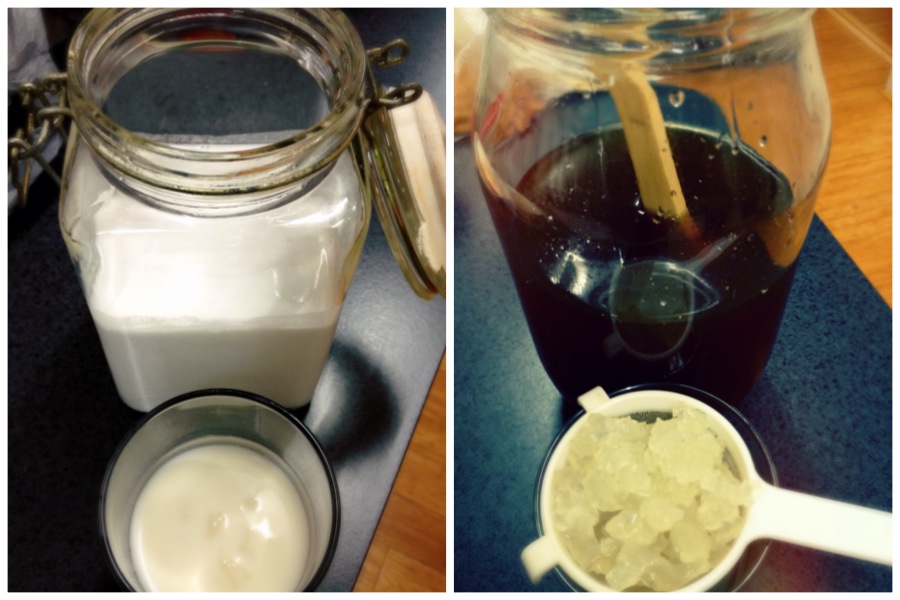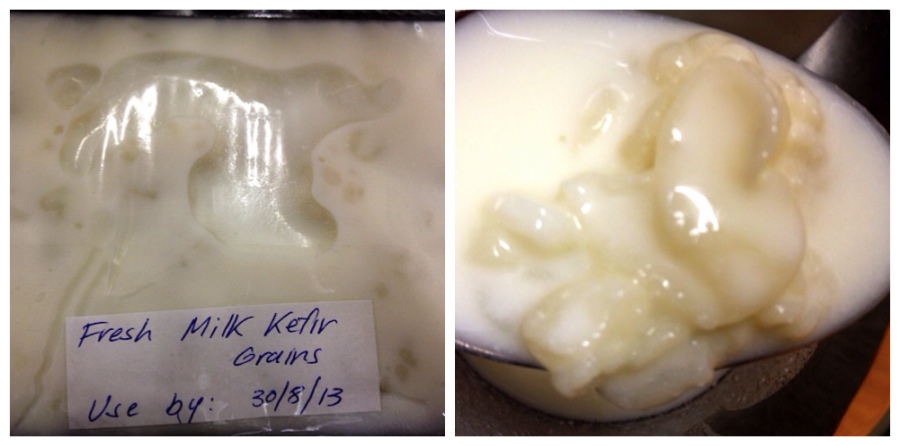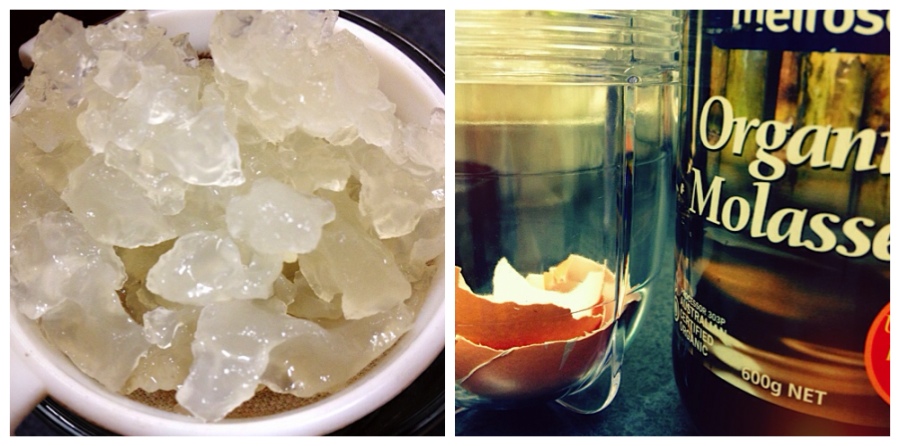The basic ingredients are tea, water, sugar and a fermenting culture called a SCOBY (Symbiotic Colony of Bacteria and Yeast). Originating in China, some refer to it as an ancient elixir. It is a living, enzyme rich drink that is high in amino acids, probiotics, antioxidants, B vitamins and more, with health benefit claims to supports the digestion, immune system, liver function and prevents cancer. Despite having little scientific research to back up the claims, it's very popular and many yogis would stockpile bottles of this stuff when it was on sale from Wholefoods and Ralph's.
It did take some getting used to at first, it's like drinking fizzy apple cider vinegar, but I'm always up for new food adventures and having so many people rave about the benefits, I got quite into it, especially since they have so many different flavours, my favourite being Chai and Pineapple Supergreens! However after a couple of weeks, I would stop wanting it.
I'm a huge believer in the body telling you what it needs and wants, and after drinking it on and off for the best part of a year, I came to the sad conclusion that as much as I loved the taste, it just wasn't doing much for me. Then I discovered kefir!
Kefir is traditionally a fermented milk drink made with kefir 'grains' originating from the Caucasus Mountains. There are two types of kefir, milk and water. Kefir is more of a general probiotic drink, the effects of the enzymes and acids might not be as effective as those of Kombucha, however the grains do contain a greater number of of bacterial strains. Health claims of kefir include digestion and immune system support, anti tumour and anti inflammatory properties, relief from Candida as well as being rich in minerals and B vitamins. Milks kefirs are a great option for those who are seeking a non dairy probiotic. The milk kefirs tastes like sour natural yogurt, and the water ones can be fizzy depending on the making process.
Despite it being quite pricey, kefirs are actually quite easy to make. When I came back to Perth after my recent trip back to the states, I couldn't find any stores that sold kefirs so I decided to look into making my own. After researching a few sites and having a look on Ebay, I came across Dom and Sandra, a couple in South Australia who are high experienced on this subject. I went ahead and purchased a batch of the milk and water grains.
The grains came in an overnight package and since I am a little bit coconut obsessive, I set about making coconut milk and coconut water kefir.
The milk kefir grains resemble bit of cottage cheese or small cauliflower, and feel a bit squishy and slimy. Apparently you can actually dehydrate and eat them, which might be something I'll look to explore later on, and bake with them!
Being lactose intolerant, I always avoid milk, even though the fermentation process removes the lactose so milk kefirs are fine for people who have dairy sensitivities. Plus coconut milk has so many benefits in itself and tastes delicious!
Coconut Milk Kefir
2 cans full fat coconut milk OR 3 cups of homemade coconut milk
2 TBS milk grains
1L glass jar
2. Cover either with a cloth or if the jar has a lid secure it and leave at room temperature for 24-48 hours (you can check it every 12hrs depending on how strongly you want the kefir to taste, the longer the fermentation process, the more sour it will be)
3. Strain the milk from the grains and put aside grains for your next batch and store the kefir in the refrigerator
* it might take a batch or two for the grains to adapt to coconut milk
* since it's not traditional milk used, the grains might take longer to grow
* every few batches return the grains back to cow's or goat's milk just to refresh them
Coconut Water Kefir
4 cups coconut water (sometimes I will do a mix of coconut water & spring water)
2 TBS water grains
1 TBS organic blackstrap molasses (or other raw sugars, e.g. coconut sugar/palm sugar)
1.5 - 2L glass jar
1. Combine everything except the grains in the jar and stir to dissolve
2. Cover either with a cloth or if the jar has a lid secure it (depending on how fizzy you want the kefir) and leave at room temperature for 24-48 hours
3. Strain from the grains and put aside grains for your next batch and store the kefir in the refrigerator
* if there isn't any noticeable difference in the grain growth, add 1 or 2 TBS of raw sugar and leave for a day or two more
* the molasses helps to ensure good grain growth, alternatively you can always add dried fruit as well e.g. dates
* I have tried doing it just with coconut water but the grains do not grow, so if you want to do this, make sure you have a batch of spring water kefir aside for growing grains
* to get a more fizzy fermentation, you must use a tight fitting lid





